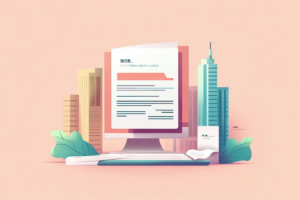How many credit cards should I have? This is a common question, especially for consumers who don’t have much experience managing credit accounts. According to Fortune magazine, the average American has four credit cards, but that doesn’t mean you need that many. Keep reading to learn more about how many cards you should have and how you can use them to boost your scores.
How Many Credit Cards Should I Have?
Unfortunately, there’s no specific number of credit cards that every person should have. It really depends on your credit profile and financial needs. If you have no open credit accounts, opening two or three credit cards and using them responsibly may help you build a strong credit history. If you already have multiple credit accounts, however, it may not help as much to open a new credit card.
Generally, you should only have the number of credit cards you can manage without missing payments or going over your limit. If you have too many, it’s easy to mix up your due dates or forget the limit on each card.
How Credit Cards Affect Your Scores
Credit cards affect your scores in several ways. Lenders use these scores to assess your payment history and overall financial stability, which helps them determine if you should be approved for new accounts or credit limit increases. Here’s how a credit card can affect your profile:
- Inquiries: Every time a financial institution pulls your credit history, it leaves a “hard inquiry” on your credit report. Too many inquiries in a short period of time can hurt your score.
- Utilization: Credit utilization refers to how much available credit you’re using. If you have three credit cards with a total of $20,000 in available credit, spending $3,000 would give you a utilization of 15%. Utilization accounts for 30% of your credit score, so it’s important not to max out your credit cards.
- Payment history: Your payment history accounts for the largest percentage of your credit score, so making your monthly credit card payments on time is extremely important. If possible, pay more than the minimum, or else you’ll pay a lot more in interest.
- Average age of accounts: Every time you open a new account, it reduces your average age of accounts, which makes up part of your credit score.
Choosing a Credit Card

If you’re in the market for a new credit card, shop carefully. What works for one of your friends may not be the best option for reaching your financial goals. The best card for you depends on whether you’re looking to save money on interest, earn cash back or get points to spend on travel and other rewards. Before you apply for a credit card, read the terms and conditions carefully.
Tips for Managing Multiple Credit Cards
When used responsibly, multiple credit cards can help you boost your score and make qualifying for an auto loan or mortgage easier. Here are a few tips for managing your accounts:
- Check your online accounts at least once per week. Even if you don’t make any charges, it’s important to check your accounts for signs of fraud. The earlier you report fraudulent charges, the easier it is to have them removed from your bill.
- Add the minimum payment for each card to your monthly budget.
- Don’t max out your card, as that can affect your utilization and reduce your overall credit scores.
- Pay off your balance every month, if possible. This shows creditors that you’re a responsible user.
- Review your statements every month. If you notice any errors, contact the credit card company immediately.
- Pull your credit reports at least once per year to look for signs of identity theft. A common indicator is accounts you don’t recognize. Contact the creditor or dispute the item with the credit bureaus if anything looks out of place.
Frequently Asked Questions
If you still have questions about credit cards, this section is for you.
Why Do Credit Cards Keep Denying Me?
If you keep getting denied when you apply for a credit card, there are a few possible reasons. The first one is that you have low credit scores. Banks and other creditors use your scores to determine if you’re likely to repay the money you borrow. In many cases, a low score indicates that you have a history of late payments, missed payments, and/or charge-offs. Many creditors aren’t willing to extend credit to someone with low scores. If you get denied, increase your scores before filling out another application.
Another common reason is that you have no score. This usually happens to young adults who’ve never had a credit card, student loan, car loan, or other type of credit account in their name. If you don’t have a score, it’s tough for creditors to take a chance on you. Consider applying for a secured credit card, using it responsibly, and applying for an unsecured card when you have a good score.
A credit card company may also deny your application if you have little or no income. Even if your credit scores are high, banks and other lenders want to know that you have income available to make your monthly payments. If you can’t show a steady source of income, your application may be denied.
When Are Credit Cards Good?
Credit cards are a tool. They’re good when you use them wisely, but they can hurt you if you miss payments, make late payments, or charge up to the limit every month. If you decide to get a credit card, make sure you have a game plan for keeping your account in good standing. Consider setting up automatic payments to avoid any late payment fees or bad marks on your credit reports.
Can Credit Card Companies Close Your Account Without Warning?
Yes. Credit card companies typically close accounts for these reasons:
- Default: If you don’t make any payments for several months, the card issuer may close your account and send the balance to collections.
- Lack of use: You may think that you’re being responsible by not using your card, but banks don’t always see it that way. The issuer can’t make money on credit card fees if you never use your available credit, so it’s possible for a creditor to close your account if you rarely use it.
- Change in your credit profile: If your credit score drops suddenly, the issuer may close your account — even if you’ve never missed a payment or made a late payment.
- Economic changes: Banks limit their risk by closing accounts or reducing credit limits in uncertain economic times.
Build Your Credit Profile
Whether you have one credit card or 10, it’s important to manage each account carefully. Making on-time payments and staying under your credit limit can help you build a strong credit profile. This can help you immensely when buying a house or applying for an auto loan.
You might also be interested in: The 7 Best Travel Credit Cards For Jetsetters And Wanderlusters







